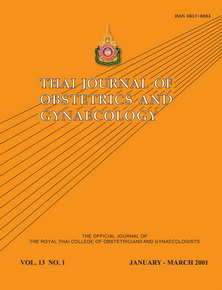International Symposium on Cervical Cancer Problems in Southeast Asia, November 2000, Nakorn Nayok, THAILAND
Main Article Content
Abstract
The principle of early detection is based on the assumption that treatment is more effective when the cancer is in pre-clinical early stages. There are 3 approaches to early detection. The first approach is screening asymptomatic populations at regular intervals and further investigation/follow up of screen-positive subjects. With this method, the diagnosis test is used to discriminate high risk from low risk. The second approach is case finding in which refers to detection of early disease in high-risk individuals in opportunistic situations. With this method, the diagnostic test is offered for some purpose and the characteristic of the condition should be known. The last approach is information education campaigns to improve awareness of the general public and to motivate them to seek early detection services. While early detection seems apparently beneficial, it involves substantial costs to
the health services and may also result in undesirable side effects. Policy decisions on implementation of early detection procedures for cancer in the health services therefore should consider factors such as the public health importance of the disease, cost- effectiveness of screening and other early detection approaches and the resources available.
the health services and may also result in undesirable side effects. Policy decisions on implementation of early detection procedures for cancer in the health services therefore should consider factors such as the public health importance of the disease, cost- effectiveness of screening and other early detection approaches and the resources available.
Article Details
How to Cite
(1)
Sankanarayanan, R. International Symposium on Cervical Cancer Problems in Southeast Asia, November 2000, Nakorn Nayok, THAILAND. Thai J Obstet Gynaecol 2017, 13, 5-13.
Section
Special Article


